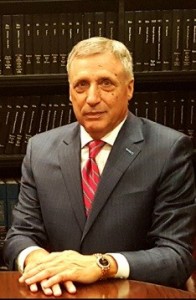 In a case in Orange County before Justice Maria Vasquez-Doles a plaintiff moved for summary judgment claiming there were no questions of fact and that a trial was not necessary in this foreclosure case. They requested an appointment of a referee to compute the amount which was owed. In addition, they wanted a default judgment against non-appearing defendants. The original note and mortgage was between Home Funds Direct and the homeowners. It was claimed the homeowners defaulted by not making timely mortgage payments. US Bank Trust moved for summary judgment. The defendants argued US Bank Trust did not have standing to bring the lawsuit. They claimed MIRS was never authorized by the original lender to assign the note and mortgage to US Bank Trust. The defendants claimed the note was in the possession of “a custodian Wells Fargo Bank” not US Bank Trust.
In a case in Orange County before Justice Maria Vasquez-Doles a plaintiff moved for summary judgment claiming there were no questions of fact and that a trial was not necessary in this foreclosure case. They requested an appointment of a referee to compute the amount which was owed. In addition, they wanted a default judgment against non-appearing defendants. The original note and mortgage was between Home Funds Direct and the homeowners. It was claimed the homeowners defaulted by not making timely mortgage payments. US Bank Trust moved for summary judgment. The defendants argued US Bank Trust did not have standing to bring the lawsuit. They claimed MIRS was never authorized by the original lender to assign the note and mortgage to US Bank Trust. The defendants claimed the note was in the possession of “a custodian Wells Fargo Bank” not US Bank Trust.
The Judge’s Decision
Justice Vasquez-Doles found US Bank Trust had not met its burden of proof to show it had standing to bring the foreclosure lawsuit. She found they failed to establish a prima facie case that US Bank Trust was in possession of the note because Wells Fargo continued to possess the original note. She also found US Bank Trust could establish the standing by showing the note was assigned to them, but they failed to do this. She also pointed out there is no endorsement to MIRS on the note giving it authority to assign the note. The evidence presented in the case was there was no evidence indicating MIRS had a right to assign the note. MIRS also could not transfer something it did not have possession of. Although US Bank Trust could have established physical delivery of the note to them, they did not undertake to do this in this case. Justice Vasquez-Doles therefore dismissed the case.
 Elliot S. Schlissel is a foreclosure lawyer representing homeowners throughout the Metropolitan New York area for more than 45 years. He can be reached at 800-344-6431 or e-mailed at Elliot@sdnylaw.com.
Elliot S. Schlissel is a foreclosure lawyer representing homeowners throughout the Metropolitan New York area for more than 45 years. He can be reached at 800-344-6431 or e-mailed at Elliot@sdnylaw.com.


 Reverse mortgages are made to homeowners aged 62 or older. They allow the homeowners to access the equity in their home to pay their bills while allowing them to continue to live in their homes. In situations involving
Reverse mortgages are made to homeowners aged 62 or older. They allow the homeowners to access the equity in their home to pay their bills while allowing them to continue to live in their homes. In situations involving 

 moving forward. After the bankruptcy is filed the attorneys for the homeowner serve the court order from the federal court on the attorneys for the financial institution and the referee appointed by the court to sell the home.
moving forward. After the bankruptcy is filed the attorneys for the homeowner serve the court order from the federal court on the attorneys for the financial institution and the referee appointed by the court to sell the home.
 is the wrong approach. Faced with their home going into foreclosure homeowners should hire competent foreclosure defense counsel. Our office has helped hundreds of homeowners throughout the Metropolitan New York area continue to stay in their homes. We can be reached for a free consultation at our offices in Nassau, Queens and Suffolk Counties at the following phone numbers:
is the wrong approach. Faced with their home going into foreclosure homeowners should hire competent foreclosure defense counsel. Our office has helped hundreds of homeowners throughout the Metropolitan New York area continue to stay in their homes. We can be reached for a free consultation at our offices in Nassau, Queens and Suffolk Counties at the following phone numbers:  The Consumer Financial Protection Bureau is reviewing new regulations which will put the brakes on a contentious practice called mandatory arbitration. Under mandatory arbitration rules, consumers must take disputes they have with financial institutions to third party mediators. This prevents them from going into courts and presenting their issues to judges. Consumer advocates feel this practice benefits large financial institutions, credit card issuers and financial service providers to the detriment of consumers.
The Consumer Financial Protection Bureau is reviewing new regulations which will put the brakes on a contentious practice called mandatory arbitration. Under mandatory arbitration rules, consumers must take disputes they have with financial institutions to third party mediators. This prevents them from going into courts and presenting their issues to judges. Consumer advocates feel this practice benefits large financial institutions, credit card issuers and financial service providers to the detriment of consumers.

 Has the bank initiated a foreclosure action against you? How do you know the bank has acted appropriately with regard to fulfilling their obligations as a financial institution? The question then becomes, is the
Has the bank initiated a foreclosure action against you? How do you know the bank has acted appropriately with regard to fulfilling their obligations as a financial institution? The question then becomes, is the 




